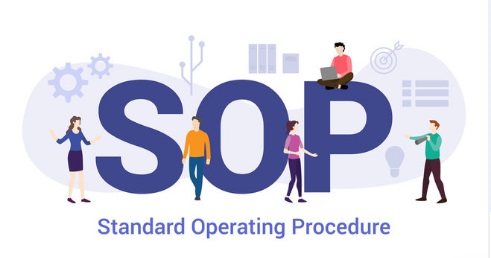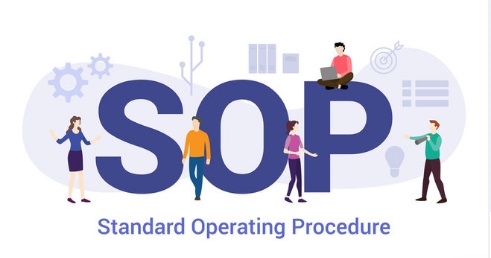Kerala GST Department issued SOP for the IBC cases before National Company Law Tribunal (NCLT)
The Insolvency and Bankruptcy Code (IBC), 2016, was enacted to consolidate the fragmented laws pertaining to insolvency. The IBC handles the insolvency proceedings cases through Tribunals i.e. NCLT (National Company Law Tribunal) and its appellate tribunal NCLAT (National Company Law Appellate Tribunal). The code recognizes three different types of creditors: Financial Creditors, Operational Creditors and other Creditors. Section 5 (20) of the Code defines an Operational debt as “a claim in respect of the provisions of goods or services including employment or a debt in respect of the payment of dues arising under any law for the time being in force and payable to the Central Government, any State Government or any local authority.”
An operational creditor has the right to file an application to initiate the insolvency resolution process of a corporate debtor, to file a claim in the insolvency resolution process and to participate (without voting rights) in a committee of creditors through their representatives. The corporate debtor undergoing insolvency is liable to furnish its GST return, pay taxes, and fulfill all other obligations as per CGST / KSGST Act, 2017 during the corporate insolvency process. The Insolvency and Bankruptcy Board of India (IBBI) appoints the Interim Resolution Professional to whom the claims must be submitted. The time limit, as indicated in the public announcement, begins from the insolvency commencement date for the filing of claims. However, filing claims within this time limit is often hindered due to the non-receipt of intimation regarding the initiation of the insolvency resolution process. As a result, these unnotified claims are not admitted and are extinguished once the Resolution Plan is approved. No demands can be raised on the Resolution Applicant who has taken over the company / unit through such a Resolution Plan.
The Insolvency and Bankruptcy Board of India (IBBI) is expected to regularly share the details of the public announcement with an identified officer designated as the Nodal Officer at the Commissionerate. The primary purpose of designating a Nodal Officer is to receive notifications from the IBBI and ensure the timely filing of claims with the Interim Resolution Professionals/ Resolution Professional within the time limit provided in Form A/Public announcement, which starts from the insolvency commencement date.
In the interest of revenue and facilitate a seamless and effective process, the Deputy Commissioner-;, Legal Cell, Office of the Commissioner of State GST, Kerala, has been appointed as the State Nodal Officer for the SGST Department. His role involves receiving information about the initiation of the insolvency resolution process and disseminating it to the field formations for necessary action in accordance with the provisions of the Insolvency and Bankruptcy Code, 2016.
To ensure a robust communication mechanism between the Nodal Officer at the Commissionerate and the district field officers, as well as subsequent monitoring of actions taken by the field formations in response to such communication, District Nodal Officers are appointed on ex-officio basis as Annexure A for this purpose.
The following procedures, as outlined below, are issued in view of the appointment of the State Nodal Officer and the District Nodal Officers.
The State Nodal Officer will receive information regarding the initiation of the insolvency resolution process for a unit/company from the IBBI through a dedicated email ID: cstlglibbi.sgst@kerala.gov.in.
The State Nodal Officer will promptly distribute the received information, via the aforementioned official email, to all Joint Commissioners (Taxpayer Services) within three working days.
The District Joint Commissioner (Taxpayer Services) shall in turn communicate the same to the respective Taxpayer Services Circle/ Division, accompanied by necessary instructions regarding the time-limit and by marking a copy to the District Nodal Officer.
The District Nodal Officer shall collaborate with the officer of the respective Taxpayer Services Circle/Division, along with the Joint Commissioner, to ensure the timely filing of claims before the Resolution Professional and for subsequent follow-up actions.
The District Nodal Officer shall promptly check the official website of the IBBI at www.ibbi.gov.in on a daily basis to verify whether any new Company / Units is going into insolvency proceedings. Upon identification, the District Nodal Officer shall communicate these details to the Joint Commissioner (Taxpayer Services) and to the respective Taxpayer Services Circle/ Division.
It shall be the responsibility of each officers belonging to the Tax Payer Services Circles/ Divisions to daily check the public announcement for any new parties going in to insolvency at the website www.ibbi.gov.in. This is particularly important, given that the officer with jurisdiction can readily distinguish the companies within their jurisdiction from the list of insolvency proceedings. The specific webpage to access the public announcements is located under “Corporate Process–> Public Announcement” on the Home Page. This proactive approach aims to facilitate the timely submission of the claims.
The Taxpayer Services Circle/Division concerned, in cases where there are pending arrears against the unit/ company mentioned in the list, shall appropriately submit their claims using Form B along with all relevant documents to the Interim Resolution Professionals/Resolution Professionals. This action is taken to safeguard revenue and facilitate the collection of government dues. Additionally, they are required to communicate this matter to the respective District Nodal Officer.
Correspondences with the Resolution Professional (RP) should be made by all Taxpayer Services Circles/ Divisions regarding finalisation of the Resolution Plan. Timely verification should also be done in the website www.ibbi.gov.in to check if any orders were issued by NCLT with respect to resolution, liquidation, and / or withdrawal of application. The specific webpage to access orders issued by NCLT and IBBI can be located under “Orders –> NCLT/IBBI” on the Home page.
The District Nodal officers are required to provide a monthly report detailing their activities, which includes verifying public announcements, submitting claims, if any, noting orders issued by IBBI/NCLT, and coordinating with the Resolution Professional to offer case updates. This report should be communicated to the Joint Commissioner (TPS HQ) by the 10th day of the subsequent month, using the proforma as Annexure B.
The Joint Commissioner (TPS HQ) is responsible for submitting a consolidated monthly report to the Commissioner. This report is intended for monitoring the progress and actions undertaken by the Taxpayer Services Circles/ Divisions.
The Additional Commissioner (TPS HQ) will conduct a monthly review of the IBBI claims. The Joint Commissioner (TPS HQ), the Joint Commissioners of Taxpayer Service, the State Nodal Officer, the District Nodal Officers, and any other officer instructed by the ADC (TPS) are required to attend.
SOP - https://keralataxes.gov.in/wp-content/uploads/2023/08/SOP_NCLT_merged.pdf





